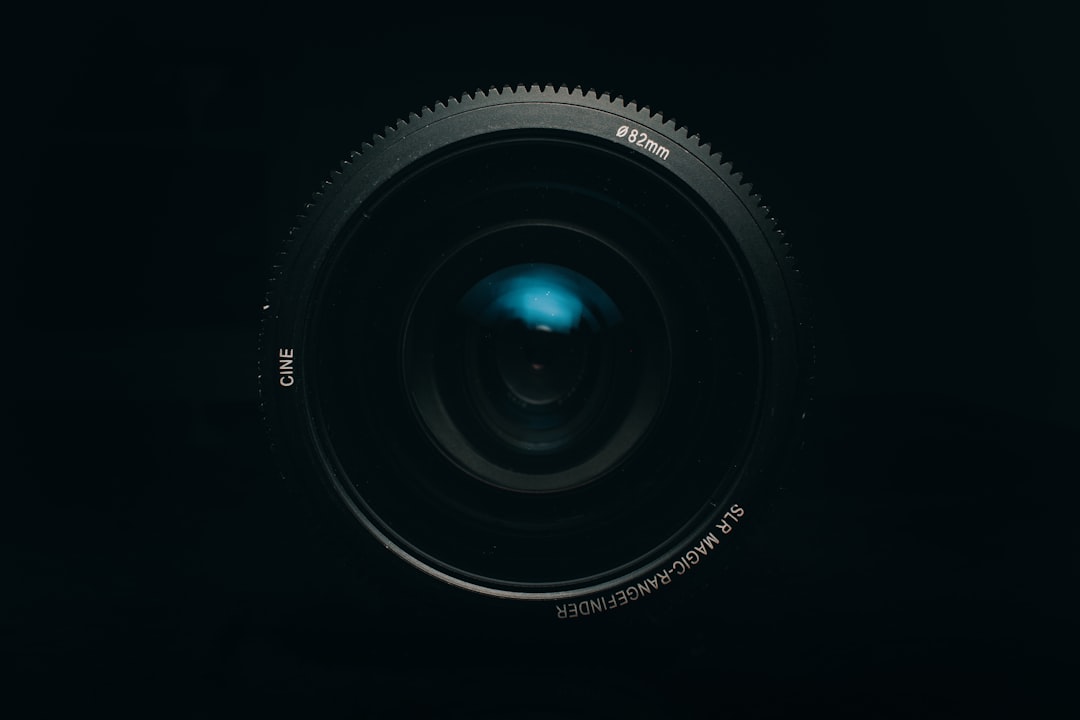
Tyre Nichols was, in his own words, an “aspiring photographer.” His favorite subject was landscapes. He also loved shooting videos while skateboarding. As one of his friends said, he used his camera “to capture the moment. . . . That was who he was. That was his life.”
“Photography helps me look at the world in a more creative way,” Tyre explained on his website. “It expresses me in ways i cannot write down for people. My vision is to bring my viewers deep into what i am seeing through my eye and out through my lens.”
(Notice how Tyre didn’t capitalize “i” when referring to himself. To me, this suggests a humble spirit.)
Browsing Tyre’s online portfolio, you’ll see a number of night shots. And you might wonder, as I do, if he had his camera with him on the evening of January 7 when Memphis police stopped his car.
Five officers eventually murdered him up with their batons, boots, and bare hands, only sixty yards from his mother’s house.
We know this happened because of cameras that weren’t his.
When authorities released the first footage of Tyre’s murder to the public, I decided it was my duty to watch it. Not that I wanted to bear witness to yet another black man being brutalized and killed by police who were sworn to “protect and serve.” But I needed to face this. To grieve this. To contemplate the horror of this.
I went online. I found the video. I took a deep breath. I pressed play.
Ten seconds into the beating, I had to stop. I closed the video tab and shut my laptop, as if that would help me unsee what I’d seen. Or undo what had been done.
By now, you’ve probably made your own decision, whether or not to view the footage. Maybe you’ve chosen to watch—from a sense of civic responsibility, or in solidarity with those who love Tyre, who look like Tyre. Maybe you’ve chosen not to watch—an act of self-protection—while finding other ways to acknowledge and mourn the barbarity.
Maybe, like me, you’ve done both.
We live much of our lives at the heart of paradox, holding in tension the truth of seemingly contradictory things. We can, for instance, feel the need to shield ourselves from grim realities, even as we feel the need to confront them.
How do we reconcile these opposite desires?
That’s one of those “unsolved questions” that Rilke famously described—a question that we must be patient toward and try to love like a locked room, or like a book written in a foreign language. It’s a question that we must live, and live, and live, until, one day, without noticing, maybe we live into an answer.
Here’s another paradoxical question, if we choose to live it: How do we denounce wrongdoing, even as we embrace the wrongdoer?
As of now, in Tyre’s case, five policemen have been fired and charged with second-degree murder. All of them are black.
The officers deserve a fair trial. But frankly, whatever legal verdicts might one day be rendered, when it comes to ethics, our eyes and ears are jury enough. There can be no ethical justification for the violence unleashed against Tyre Nichols. It was beyond wrong. It was vile.
We understand this.
But do we, at the same time, understand the perpetrators?
Do we understand how black men might so internalize the racism of the majority white culture that they end up serving as its diabolical instruments, snuffing out people who look like themselves?
Do we understand how police training and culture, over years of service, might so dehumanize individual officers—even traumatize them—until they can no longer recognize and honor the humanity of those they’re sworn to protect?
Do we understand how we might better attend those who actions sicken us and make us turn away in exhaustion and judgment?
I’m so tired of grieving such killings as Tyre’s.
I’m so tired of wrestling with what they mean, and how to stop them.
Chances are, you’re tired, too.
But here’s another paradox: We can be tired, yet still have all the energy we need to change things.
In fact, I doubt that any significant change ever comes to this world without significant tiredness.
W. H. Auden: “Poetry makes nothing happen.”
William Carlos Williams: “It is difficult to get the news from poems, yet men die miserably every day for lack of what is found there.”
Both of these statements, though they disagree, are true. Together, they’re a paradox.
Poetry doesn’t matter. Yet it’s essential, I believe, to the ripening of this world.
So is music. So is dance. So is film. So is whatever you yourself happen to make, big or small, creatively adding to the righteous beauty of this world.
What you do—what you make—won’t change anything. Yet it will.
As a photographer, and as a young black man in the United States, Tyre Nichols lived and died at the heart of this paradox. His memory still abides there.
Will you meet me in the midst of it, to live our questions into answers?
The Gentle Nudge
Join other Rafters this week for . . .
Poetry Pick-Me-Up (Zoom, Thursday, 12:00-1:00PM Central), at this link)






Thank you for this thoughtful column, Phyllis. Such a difficult topic to write about - It is indeed a paradox and an example of how white supremacy has saturated even people of color - how do we hold the fact that some of these police officers were themselves fathers? how do they return home after an incident like this? What is required - the training - to be an officer of the law? Is stripping them of their humanity the only way to go so that they are able to kill? Or are we looking at the trauma that all officers carry and have to manage in a job that is impossible to do as we have defined it. I hope we can establish mental health support for folks who are trying to maintain the law on our streets and perhaps find new strategies for doing so as we reconsider ways "police" our society.
I chose not to view the horror. It would have stayed in my mind’s eye & haunted me. I’m already stressed from the ongoing madness in our world. 🙏